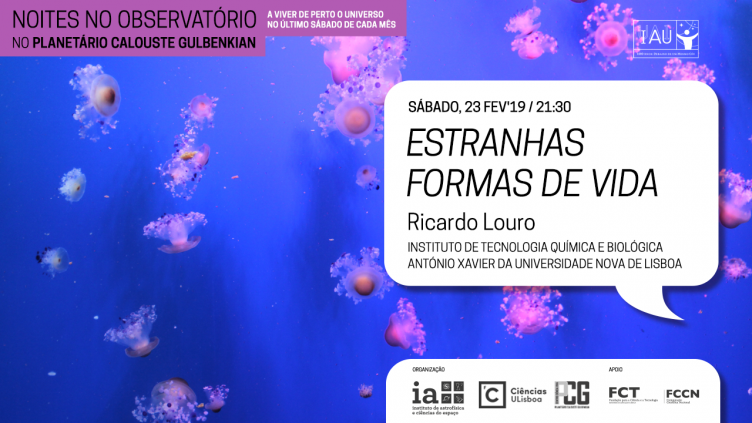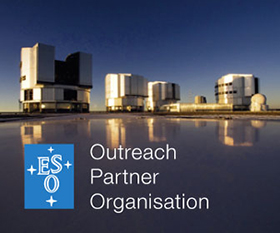What kinds of life can exist in other planets? Could “our” Earth, so pleasant, host lifeforms capable of surviving in the conditions found in other places of the Solar System?
As we learn in more detail the environment in other planets in the Solar System, and even in planetary systems around other stars, one raises the question of whether they could host life. And if it is so, what kind of life?
The biochemist Ricardo Louro, of ITQB-NOVA, will explain how Earth organisms could live in the apparently harsh conditions found away from Earth, and explore the limits of what we can consider as living.
After the public talk (in Portuguese), there will be a music and effects show projected on the planetary dome, and observations of the night sky with telescopes will run continuously until midnight, if weather conditions allow (guided tours available in English).
Throughout 2019, the International Astronomical Union (IAU), celebrates its 100 years of existence. The Noites no Observatório participate in this celebration joining, during the whole year, the many events and projects happening all over the world.
Noites no Observatório are organised by the Instituto de Astrofísica e Ciências do Espaço, in partnership with the Planetário Calouste Gulbenkian – Centro de Ciência Viva.
Share
Duration:
3 horasFree entrance
Registration
Despite the event being free of charge, the access to the activity requires a registration here.
Please beware:
1) Due to the growing audience attending our activities and the fact that some people give up without notice, up to two emails will be sent asking for confirmation. The lack of a reply within 48 hours after the reception of this confirmation request will be taken as a dropout and the registration will be cancelled. For this reason, please check your email inbox regularly in order to confirm your attendance in the activity.
2) You will need to pick a registration ticket at the entrance of the Planetário Calouste Gulbenkian between 9pm and 9:25pm on the day of the event. After 9:25pm, the tickets which have not been taken will be given to people on the waiting list and, on a first come first served basis, to people without registration.
Important:
The observation of the night sky depends on the weather conditions. As this is run outside, we recommend the use of warm clothes.
The talk is given regardless of the observations. The Calouste Gulbenkian Planetarium will open its doors half an hour before the event starts.
The public talk is given in Portuguese. Observations of the night sky are available in English.
Don’t miss an event
Follow us on the IA facebook page, twitter feed or subscribe to our newsletter (in Portuguese).
Location
Planetário Calouste Gulbenkian - Centro Ciência VivaMuseu de Marinha
Praça do Império
Lisboa
How to get there
By car
GPS – 38.698140, -9.208919
By bus
714, 727, 28, 729, 751 e 201
By tram
15
By boat
Estação fluvial de Belém ( Transtejo)
Live broadcasting
You can watch the event from home and ask questions to the speaker visiting this online address.
The online broadcasting of the talks has the support of the Fundação para a Computação Científica Nacional (FCCN), a department of the Fundação para a Ciência e a Tecnologia (FCT).
A videotransmissão das palestras tem o apoio da Fundação para a Computação Científica Nacional (FCCN), unidade da Fundação para a Ciência e a Tecnologia (FCT).


